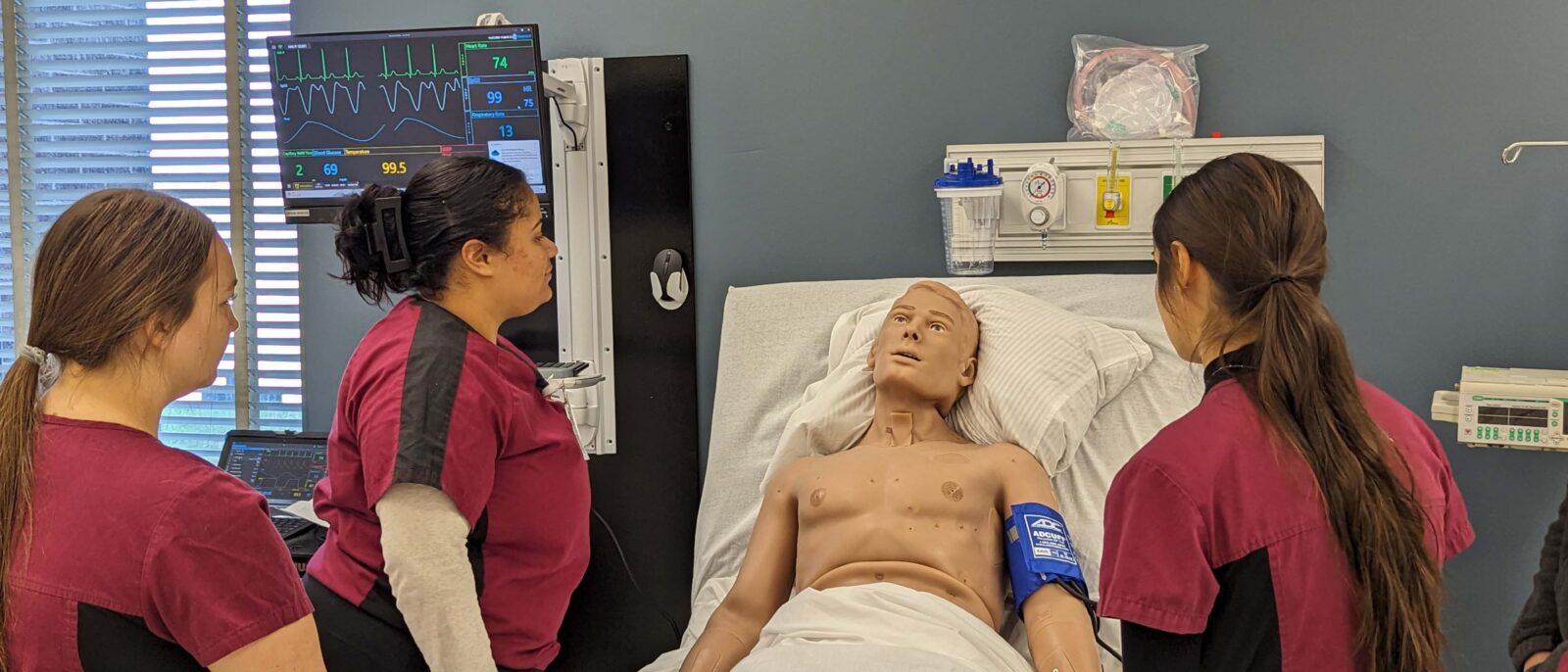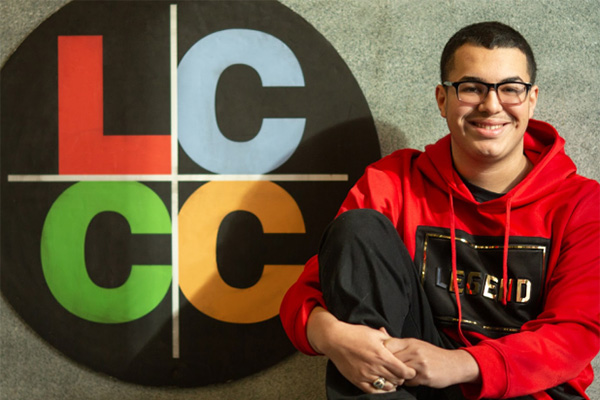State-of-the-Art Nursing Instruction

Students enrolled in the nursing program at Lehigh Carbon Community College are getting more than rigorous classroom instruction. Thanks to the recent acquisition of an AI-enabled manikin, they now have a rare opportunity to sharpen their skills and build their confidence to a sophisticated degree before treating human patients in the real world.
LCCC is one of only two schools in the Pennsylvania, New Jersey and New York region with a state-of-the-art manikin—the newest addition to the school’s Health Care Patient Simulation Centers at the Schnecksville, Tamaqua and Donley campuses.
Known as HAL, the 5’9” manikin weighs 135 pounds and is made of a silicone overlay that gives it a lifelike feel and appearance. While older manikins were made of wires, had limited movements and were operated by humans, HAL is a high fidelity facsimile preprogrammed to respond to questions and directions on its own. Nursing teachers can also change HAL’s responses on the spot to challenge students’ assumptions during a simulated health emergency.
With its advanced AI capabilities, HAL can be addressed by name and converse with nursing students. As many students find it awkward to ask human patients for information about their condition—a necessary first step in assessing their condition and deciding on a course of treatment—the ability to practice on HAL has polished their communication skills and eased their hesitancy. “He’s a little sassy. They have to ask the right questions in the right way to get the response. It really helps in honing their assessment skills,” says Karen Wotring, associate professor of nursing.
HAL’s capability to mimic human behavior and bodily functions helps students apply their classroom instruction in realistic ways. To simulate a stroke, for example, HAL’s face can droop. HAL’s advanced robotics enable him to shake hands, allowing students to test for grip strength and determine if an underlying neurological abnormality exists. They can take his blood pressure and gauge pupil movement. Sweat on his skin could be a warning sign for low blood sugar in a diabetic scenario. He can cry and express pain.
HAL produces high-quality sounds—heart, bowel, lung—and is equipped with a bloodlike fluid, training students in listening to the body’s internal rhythms and drawing blood. Such human responses help students develop their critical thinking skills also: taking HAL’s vital signs pushes them to work out diagnostic problems in time-critical situations.
“This state-of-the-art technology provides students with hands-on experience and the confidence when they go in the live clinical setting. You can do something over and over. We find that our students learn best with repetition, which you don’t get in a clinical setting,” says Karen Clark, director of nursing.
The nursing simulation centers are also home to Victoria, a high fidelity manikin with a mechanical baby housed in her abdomen. By wearing mixed reality goggles, students get an enhanced experience: they see both the actual birth taking place in front of them and, at the same time, a holographic representation of the birthing process—including the placement of the placenta, the uterus, and how the baby is positioned. Once the baby exits Victoria, students can practice their nursing skills, such as listening to the baby’s heartbeat and suctioning secretions from the mouth and nose. As with HAL, the instructor can either allow Victoria to follow her preprogramming or dramatically change the script to see how students think on their feet.
Purchased for $100,000 through a Perkins educational grant, HAL has provided real world experiences at LCCC’s simulation centers and accelerated the learning curve of nursing students. “They definitely want the best nurses to come out of their program. They want us to have the foundation to walk onto the hospital floor and know how to prioritize and care for our patients,” said Angela Reager, a licensed practical nurse getting her associate’s degree in August 2024. “They want us to have the clinical judgment to provide what our patients need and not think all patients are equal. This gives us the ability to enhance that.”

